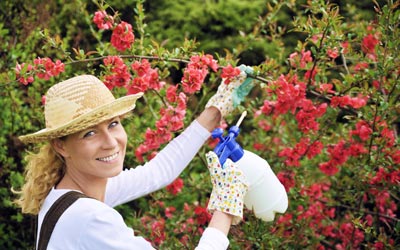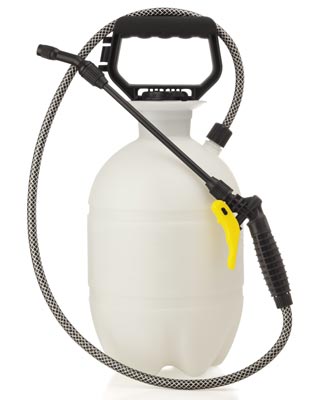Roundup Cancer Warnings
Roundup Non-Hodgkins Lymphoma

Roundup cancer warnings and bans have been issued by numerous governmental bodies and public health groups. Many of these were prompted by the World Health Organization's warning that Roundup is likely a carcinogen – an announcement which came in early 2015.
The Roundup cancer warning was the result of a large-scale analysis of safety studies conducted around the globe. Based on the evidence gathered, the International Agency for Research on Cancer determined that Roundup likely causes cancer in persons who are directly exposed to the substance. Exposure to Roundup increases the rates of leukemia, non-Hodgkin lymphoma and other forms of cancer.
Global Roundup Warnings
In some cases, entire nations have banned the use of Roundup due to the cancer threat. In others, Roundup has been banned for private, home use. The United States has not issued a Roundup cancer warning or ban; the product is still in wide use in American yards, parks, gardens, and farms despite the threat of Roundup cancer.
The State of New York does regulate the manner in which Monsanto can advertise Roundup. Specifically, the company may no longer make advertising claims that the product is safe for general use. This ruling is the only regulation of Roundup in the United States.
Countries and entities that have issued Roundup warnings, or full or partial bans, include:

- Argentina
- Belgium
- Bermuda*
- Brazil
- Colombia*
- El Salvador*
- European Union
- France*
- Germany
- Italy
- Malta*
- Netherlands*
- Portugal
- Sri Lanka*
- Sweden
- Switzerland
- World Health Organization (WHO)
* Indicates a full or partial Roundup ban.
Monsanto on Roundup Cancer Warnings
Since the product's market release in 1974, Monsanto has claimed Roundup was safe for home gardeners and commercial farmers alike. Even today, when countries around the world are choosing to ban the weed killer based on the IARC's Roundup cancer warning, Monsanto officials claim the Roundup cancer risk is a myth.
Monsanto has much to gain from ignoring Roundup cancer risks.Of the $15 billion Monsanto earned in sales last year, nearly $5 billion came directly from Roundup. A majority of the rest of the company's annual sales can be traced back to companion products such as Roundup Ready crops. A U.S. Roundup cancer warning could significantly harm domestic sales.
The company has a record of funding fraudulent and falsified Roundup cancer studies, and public health advocates say the company should not be trusted to determine the safety of its own (highly profitable) product. In the 1970s and 1990s the company was investigated for its role in fraudulent safety research by the FDA and the DOJ, respectively. In the State of New York, Monsanto may no longer advertise Roundup as safe, as a result of prominent litigation brought by that state's Attorney General against Monsanto.
Lawyers for Roundup Cancer Lawsuits
Attorneys handling Roundup cancer lawsuits for leukemia and non-Hodgkin lymphoma offer free, no-obligation case review for individuals and families who believe they may have grounds to file a Roundup cancer lawsuit. Working on a contingency basis, these attorneys are committed to never charging legal fees unless they win compensation in your Roundup cancer lawsuit. The product liability litigators handling Roundup claims at the Onder Law Firm have a strong track record of success in representing families harmed by dangerous drugs and consumer products.



Austin, TX
Baltimore, MD
Birmingham, AL
Boston, MA
Buffalo, NY
Charlotte, NC
Chicago, IL
Cincinnati, OH
Cleveland, OH
Columbus, OH
Dallas, TX
Denver, CO
Detroit, MI
Fresno, CA
Hartford, CT
Honolulu, HI
Houston, TX
Indianapolis, IN
Jacksonville, FL
Kansas City, MO
Las Vegas, NV
Los Angeles, CA
Louisville, KY
Memphis, TN
Miami, FL
Milwaukee, WI
Minneapolis, MN
Nashville, TN
New Orleans, LA
New York, NY
Oklahoma City, OK
Orlando, FL
Philadelphia, PA
Phoenix, AZ
Pittsburgh, PA
Portland, OR
Providence, RI
Raleigh, NC
Richmond, VA
Riverside, CA
Rochester, NY
Sacramento, CA
Salt Lake City, UT
San Antonio, TX
San Diego, CA
San Francisco, CA
San Jose, CA
Seattle, WA
St. Louis, MO
Tampa, FL
Tucson, AZ
Tulsa, OK
Virginia Beach, VA
Washington, DC
Alaska
Arizona
Arkansas
California
Colorado
Connecticut
Delaware
Florida
Georgia
Hawaii
Idaho
Illinois
Indiana
Iowa
Kansas
Kentucky
Louisiana
Maine
Maryland
Massachusetts
Michigan
Minnesota
Mississippi
Missouri
Montana
Nebraska
Nevada
New Hampshire
New Jersey
New Mexico
New York
North Carolina
North Dakota
Ohio
Oklahoma
Oregon
Pennsylvania
Rhode Island
South Carolina
South Dakota
Tennessee
Texas
Utah
Vermont
Virginia
Washington
West Virginia
Wisconsin
Wyoming